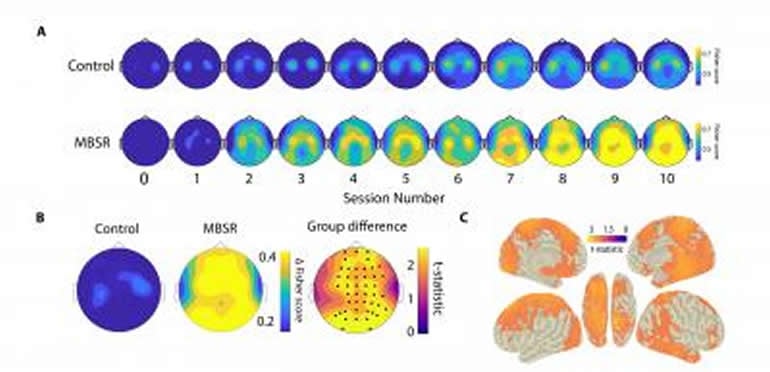[Article] Meditation for mind-control

The team found that those with training in mindfulness-based attention and training (MBAT) were more successful in controlling the BCI, both initially and over time. Interestingly, the researchers found that differences in brain activity between the two sample groups corresponded directly with their success. The meditation group showed significantly enhanced capability of modulating their alpha rhythm, the activity pattern monitored by the BCI system to mentally control the movement of a computer cursor.
His findings are very important for the process of BCI training and the overall feasibility of non-invasive BCI control via EEG. This work shows that just a short period of MBAT training can significantly improve a subject’s skill with a BCI. This suggests that education in MBAT could provide a significant addition to BCI training.
https://neurosciencenews.com/meditation-mind-control-17071/
Mindfulness Improves Brain–Computer Interface Performance by Increasing Control Over Neural Activity in the Alpha Band James R Stieger, Stephen Engel, Haiteng Jiang, Christopher C Cline, Mary Jo Kreitzer, Bin He